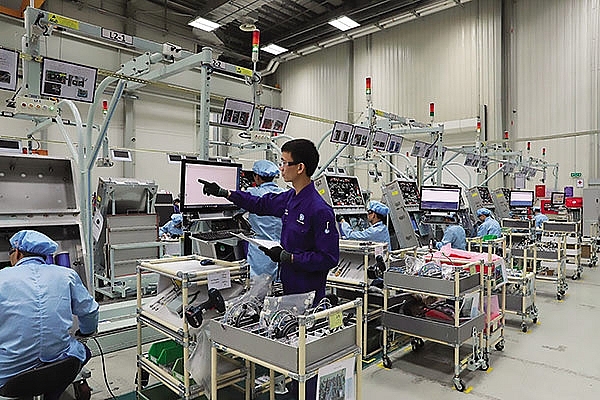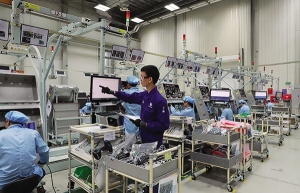Profit figures mark significant impact of digital transformation
 |
In the “From C-Suite to Digital Suite” research, ManpowerGroup shares that by 2020, 30 per cent of industry revenue will come from new business models and transforming quickly can make the difference between success and failure.
However, C-Suite is not enough to lead through businesses digital transformation. It requires the Digital Suite: a community of digital-ready, analytically-minded, and connected leaders dedicated to creating the necessary culture and capabilities within the organisation to unlock opportunities and drive successful digital transformation.
The good news is digital leadership is not a total replacement of the fundamental attributes underlying leadership effectiveness. Instead, 80 per cent of the competencies and enablers that have always made leaders effective remain the same. The other 20 per cent is made up of the capabilities that were not so necessary before, but are critical now for modern and future leaders, and these capabilities are completely coachable. We call this is the 80/20 rule.
In “The Human Age,” many expected that as the recession subsided, the world would return to business as usual. That has not happened. Instead, we have a world marked by uncertainty. Some forces are driving the reconfiguration of labour markets, including technological revolution, customer/client sophistication, and the rise of individual choice. Then how can leaders be best prepared to lead through this transformation?
To adapt to the technological revolution, businesses are adjusting by exploring new strategies that are better suited to rapid change, shorter business cycles, technological disruption, and skill shortages, among others, because the technological application at the workplace, such as digitisation, data generation, automation, AI, private cloud and public cloud, and machine learning, just to name a few, have been creating new ways to get work done.
This may be considered a threat to many, but ManpowerGroup believes this is good news for job seekers if they have the in-demand skills. Our “Skills Revolution 2.0” white paper indicates that 86 per cent of employers say digitisation will be a net gain for employment.
Only 10 per cent expect to reduce their workforce as a result of automation. As companies go digital, most will need more people, not fewer.
 | FPT to focus on digital transformation FPT Group will focus on its core segment: technology, specifically digital transformation, after reducing its ownership rates in FPT Trading and FPT Retail. |
 | Internet of Things to drive VN digital transformation The massive potential of Internet of Things (IoT) is set to help Việt Nam pursue its goal of a smart city and becoming an industrial ... |
 | GE’s digital transformation surfs the Industry 4.0 wave As the world is speeding ahead with the Internet of Things and Industry 4.0 applications, a radical transformation is taking place in factories. With the ... |
 | Why digital transformation is essential for the world’s fastest-moving industry At the 2016 Formula One Europe Grand Prix in Baku, the world saw the fastest pit-stop ever at 1.92 seconds, attesting that one split second ... |
What the stars mean:
★ Poor ★ ★ Promising ★★★ Good ★★★★ Very good ★★★★★ Exceptional
Related Contents
Latest News
More News
- Masan Consumer names new deputy CEO to drive foods and beverages growth (February 23, 2026 | 20:52)
- Myriad risks ahead, but ones Vietnam can confront (February 20, 2026 | 15:02)
- Vietnam making the leap into AI and semiconductors (February 20, 2026 | 09:37)
- Funding must be activated for semiconductor success (February 20, 2026 | 09:20)
- Resilience as new benchmark for smarter infrastructure (February 19, 2026 | 20:35)
- A golden time to shine within ASEAN (February 19, 2026 | 20:22)
- Vietnam’s pivotal year for advancing sustainability (February 19, 2026 | 08:44)
- Strengthening the core role of industry and trade (February 19, 2026 | 08:35)
- Future orientations for healthcare improvements (February 19, 2026 | 08:29)
- Infrastructure orientations suitable for a new chapter (February 19, 2026 | 08:15)

 Tag:
Tag:

















 Mobile Version
Mobile Version